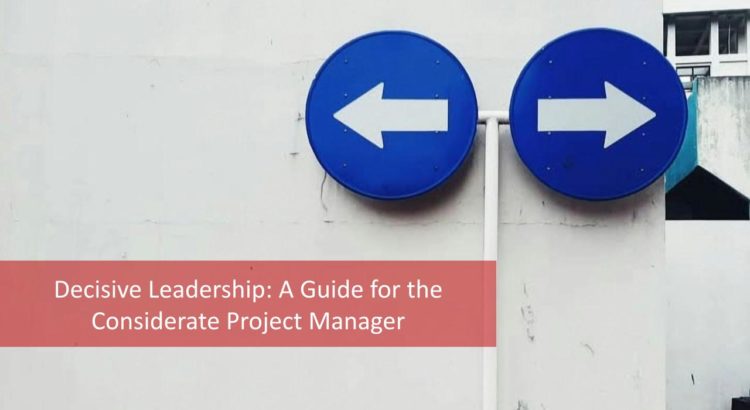Project management isn’t just about following processes; it’s about making decisions—often tough ones. Yet, many project managers hesitate, endlessly weighing options, trapped in analysis paralysis. If you’ve ever stalled at a crossroads, fearing the impact of your choices, this guide is for you. Decisiveness isn’t arrogance; it’s responsibility in action.
Decisive vs. Hesitant: A Tale of Two Managers
Picture this: two project managers leading identical projects. Both have received comprehensive project management training. One manager, Alex, embodies decisiveness. When obstacles emerge, Alex assesses swiftly, consults briefly, then decides confidently, pivoting quickly if needed. The other manager, Taylor, overly considerate and cautious, endlessly gathers opinions, fearing missteps. Projects under Alex thrive, teams are engaged, and morale is high. Taylor’s teams? Frustrated, unsure, productivity stalling as they await direction.
The difference isn’t knowledge—both have PMP training—but in decisive execution.
Enroll in the Master of Project Academy’s PMP courses to be PMP-certified:
Decisiveness is Not Disrespectful
Project managers often equate decisiveness with being harsh or inconsiderate. Yet decisiveness and consideration are allies, not opponents. Decisiveness respects teams by clearly setting directions, removing ambiguity, and reducing anxiety. Great project managers combine assertiveness and empathy, making tough calls for the project’s greater good while acknowledging team input.
Project Communication: Empowering Teams vs. Undermining Their Value
Why Indecision Is Costly
Hesitation, though born from good intentions, comes at a high price:
- Delayed Timelines: Indecision creates bottlenecks, spiraling delays.
- Increased Costs: Every delay translates to extra resource usage and heightened expenses.
- Lost Opportunities: While you’re deliberating, competitors or other internal projects capitalize on what could’ve been yours.
In-depth CAPM training emphasizes recognizing these hidden costs and prepares newer project managers to become assertive decision-makers early on.
Check out MoPA’s CAPM courses:
Three Steps to Becoming More Decisive
- Set Clear Decision-Making Criteria: Before a project kicks off, define clear decision-making frameworks. What factors matter most? Schedule, cost, quality, or stakeholder satisfaction? Having clear criteria simplifies choices when under pressure.
- Limit Your Options: Endless options breed confusion. Focus on no more than three possibilities when facing critical project decisions. Evaluate quickly, then act.
- Trust Your Training: Rely on your PMP or CAPM training—your instincts are sharpened by formal project management training and real-world experiences. Trust the training you’ve invested in.
Hone your skills with real-world examples of successful project management that are included in our Sandbox membership.
Training for Decisiveness: The Role of PMP and CAPM
Effective decision-making is embedded throughout project management training courses. PMP training teaches seasoned project managers advanced decision-making techniques like decision trees and risk assessment models. CAPM training introduces foundational principles like prioritization matrices and stakeholder analysis, equipping new managers to confidently make informed decisions.
Read more about System Project Management and the Grand Master Strategy: Uniting Execution and Outcome
The Decisive Edge
Being decisive isn’t just a skill—it’s a responsibility. When you step into your decisiveness, you inspire trust, build a strong team culture, and move projects forward effectively. In mastering decisiveness through targeted project management training, you become not just a good project manager, but a truly exceptional one.
Take a step today—choose decisiveness. Your projects, your teams, and your career will thank you.
